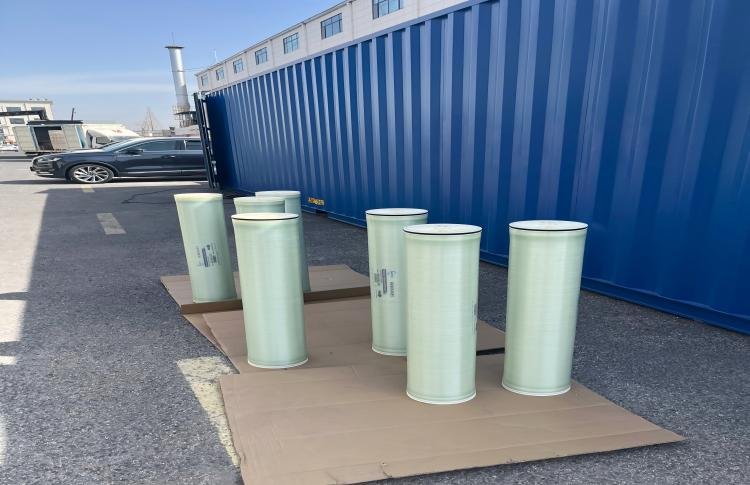Seawater reverse osmosis (SWRO) membranes are critical components in desalination systems, converting saline water into potable water. However, many users find that these membranes degrade faster than expected. Understanding the reasons behind premature membrane failure is essential for optimizing performance and extending lifespan. At Bestamembrane, we specialize in producing high-quality SWRO membranes designed to overcome common challenges.
Common Causes of Premature Membrane Failure
1. Membrane Fouling
Fouling occurs when particles, microorganisms, or organic substances accumulate on the membrane surface, reducing efficiency. Types of fouling include:
-
Biofouling: Caused by microbial growth.
-
Scaling: Due to mineral deposits like calcium carbonate.
-
Organic Fouling: From natural organic matter.
Regular cleaning and proper pretreatment can mitigate fouling, but selecting membranes with anti-fouling properties is crucial.
2. Chemical Degradation
Exposure to oxidants like chlorine can degrade membrane materials. While pretreatment processes aim to remove such chemicals, residuals can still cause damage over time. Using membranes with enhanced chemical resistance helps in such scenarios
3. Operational Stress
Operating membranes outside recommended pressure and temperature ranges can lead to mechanical stress and eventual failure. Ensuring that systems operate within specified parameters is vital for membrane longevity.
Factors Influencing Membrane Lifespan
The lifespan of SWRO membranes varies based on several factors:
| Factor | Impact on Lifespan |
|---|---|
| Feedwater Quality | High TDS and contaminants reduce life |
| Pretreatment | Effective pretreatment extends life |
| Cleaning Frequency | Regular cleaning prevents fouling |
| Operational Conditions | Staying within specs avoids stress |
Studies indicate that with optimal conditions, SWRO membranes can last between 3 to 5 years. However, deviations can significantly shorten this period.
Bestamembrane’s Approach to Durable SWRO Membranes
At Bestamembrane, we understand the challenges faced by desalination systems. Our commitment to quality and innovation ensures that our membranes stand out in performance and durability.
In-House Production
We control every step of the manufacturing process, from raw material selection to final product testing. This vertical integration guarantees consistent quality and allows for customization based on client needs.
Robust R&D Team
Our team of over 50 researchers and engineers continuously work on improving membrane technology, focusing on enhancing resistance to fouling, chemical degradation, and operational stress.
Diverse Product Range
We offer a variety of SWRO membranes tailored for different applications:
| Model | Features | Applications |
|---|---|---|
| Besta-SW400 | High flux, anti-fouling design | Municipal desalination plants |
| Besta-SW400HR | High rejection, energy-efficient | Industrial water treatment |
| Besta-SW400FR | Fouling-resistant, long lifespan | Challenging feedwater conditions |
Each model is designed to address specific challenges, ensuring optimal performance across various scenarios.
Case Study: Enhancing Membrane Lifespan
A coastal desalination plant faced frequent membrane replacements due to high biofouling rates. After switching to Bestamembrane’s Besta-SW400FR model, the plant observed:
-
50% Reduction in cleaning frequency.
-
Extended Membrane Life from 2 years to over 4 years.
-
Improved Water Quality with consistent TDS levels below 500 ppm.
This transition not only reduced operational costs but also improved overall system reliability.
Tips for Maximizing Membrane Lifespan
-
Implement Effective Pretreatment: Remove particulates and organics before RO.
-
Monitor Operating Conditions: Ensure pressure and temperature stay within recommended ranges.
-
Regular Maintenance: Schedule periodic cleaning to prevent fouling.
-
Choose the Right Membrane: Select membranes suited for specific feedwater characteristics.
Conclusion
Premature failure of SWRO membranes can be attributed to factors like fouling, chemical degradation, and operational stress. By understanding these challenges and selecting high-quality membranes, such as those offered by Bestamembrane, users can enhance system performance and reduce costs.
For more information on our products and how we can assist in optimizing your desalination processes, visit www.bestamembrane.com.

 MBR Membrane
MBR Membrane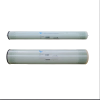 Reverse Osmosis Membrane
Reverse Osmosis Membrane Residential Ro Membrane
Residential Ro Membrane UF Membrane
UF Membrane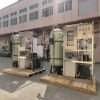 Water Treatment Plant
Water Treatment Plant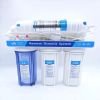 Residential Ro Machine
Residential Ro Machine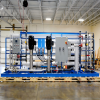 Brackish Ro System
Brackish Ro System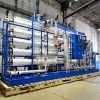 Sea water system/SW RO plant
Sea water system/SW RO plant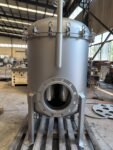 Bag Filter
Bag Filter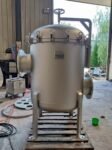 Cartridge Filter
Cartridge Filter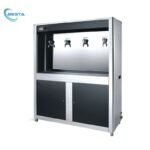 Commercial Water Filtration System
Commercial Water Filtration System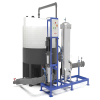 Membrane Cleaning System(CIP)
Membrane Cleaning System(CIP)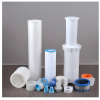 Consumables Accessories
Consumables Accessories